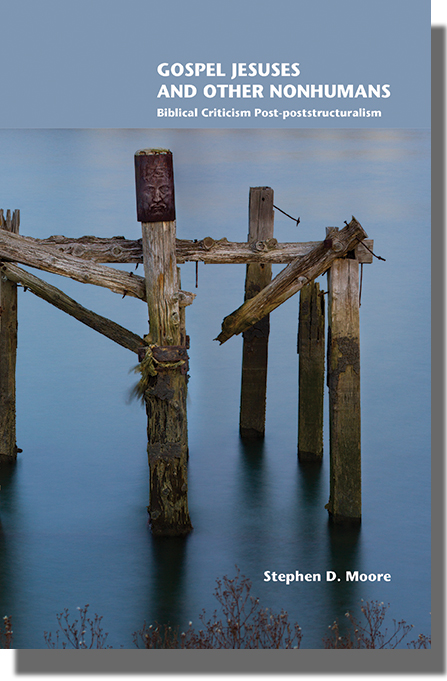
$42.00
Essential reading for biblical studies students and scholars interested in cutting-edge critical theory
The current global ecological crisis has prompted a turn to the nonhuman in critical theory. This book breaks new ground in biblical studies as the first to bring nonhuman theory to bear on the gospels and Acts. Nonhuman theory, a confluence of several of the main theoretical streams that have issued forth since the heyday of high poststructuralism, includes affect theory, posthuman animality studies, critical plant studies, object-oriented new materialisms, and assemblage theory. Nonhuman theory dismantles and reassembles the Western concept of “the human” that coalesced during the Enlightenment and testifies to other conceptions of the human and of the nonhuman, not least those found in the canonical gospels and Acts. Stephen D. Moore’s exegetical explorations and defamiliarizations of these overly familiar texts and excavations of their incessantly erased strangeness are the central feature of this provocative book.
Features
- New paths in biblical ecotheology and ecocriticism
- A significant contribution to the analysis of emotions in biblical texts
- Class resource for courses in methods for biblical studies, the gospels, and the Bible and ecology
Stephen D. Moore is Edmund S. Janes Professor of New Testament Studies at the Theological School, Drew University, Madison, New Jersey. He is the author of many books, most recently Untold Tales from the Book of Revelation: Sex and Gender, Empire and Ecology (SBL Press) and The Bible in Theory: Critical and Postcritical Essays (Society of Biblical Literature), and the co-author of The Invention of the Biblical Scholar: A Critical Manifesto (Fortress).
Download volume front matter, including table of contents and introduction.
Download a printable publication sheet that you can put in your files or give to your librarian or bookstore.
Download a printable standing order sheet to see other available volumes in the series and to give to your librarian to set up a standing order.
